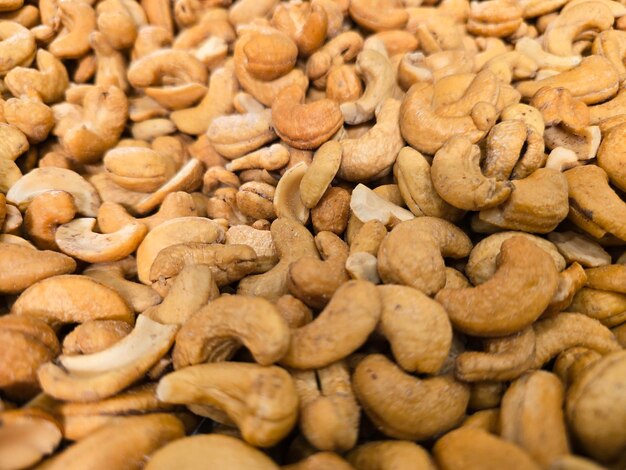10 Most Important Agricultural Exports from Nigeria

Nigeria is a country blessed with vast arable land and a diverse climate, making it one of Africa’s leading agricultural producers. Agriculture plays a crucial role in the Nigerian economy, providing employment and contributing significantly to the country’s Gross Domestic Product (GDP). As the nation seeks to diversify its economy, agricultural exports have become increasingly important. Here are ten of the most important agricultural exports from Nigeria.
1. Cocoa
Nigeria is one of the top producers of cocoa in the world, ranking among the largest exporters. Cocoa is a significant cash crop and is primarily grown in the southern regions of the country, including Ondo, Ekiti, and Osun states. Nigerian cocoa is renowned for its quality and is exported mainly to Europe and the United States, where it is processed into chocolate and other products.
Key Facts:
- Nigeria ranks as the fourth-largest cocoa producer globally.
- Cocoa exports contribute significantly to foreign exchange earnings.
2. Cashew Nuts
Nigeria is one of the largest producers of cashew nuts in Africa. The country’s favorable climate allows for the cultivation of cashew trees, primarily in the Middle Belt and South East regions. Cashew nuts are exported in both raw and processed forms, with major markets in Europe, India, and the United States.
Key Facts:
- Nigeria’s cashew production has been growing steadily.
- The country aims to increase processing to boost revenue from exports.
3. Palm Oil
Nigeria was once the world’s largest producer of palm oil, and it remains a significant agricultural export. The oil palm tree is cultivated mainly in the Niger Delta region and the Southeast. Palm oil is essential for cooking, food processing, and industrial applications, making it a valuable export commodity.
Key Facts:
- Nigeria produces both crude and refined palm oil.
- The global demand for palm oil continues to rise, offering export opportunities.
4. Yams
Nigeria is the largest producer of yams in the world, with substantial production in the North Central and Southern regions. Yams are a staple food in Nigeria and are exported to various countries, particularly in Europe and North America, where they are sought after for their nutritional value.
Key Facts:
- Yams are often exported fresh, dried, or processed into flour.
- The Nigerian yam is celebrated for its taste and quality.
5. Ginger
Nigeria is among the top producers of ginger globally, particularly in the northern regions, such as Kaduna and Kano. Ginger is a highly valued spice used in food and beverage production, pharmaceuticals, and cosmetics. Nigerian ginger is known for its strong flavor and aroma, making it popular in international markets.
Key Facts:
- Ginger exports have been increasing due to growing global demand.
- The spice is processed into powdered form and essential oils for export.
6. Sesame Seeds
Sesame seeds are another essential agricultural export from Nigeria. The country is one of the largest producers of sesame in Africa, with production concentrated in the northern regions. Sesame seeds are exported mainly to Asia and Europe, where they are used in cooking, baking, and as oil.
Key Facts:
- Nigeria’s sesame seed exports have grown significantly in recent years.
- The seeds are prized for their high oil content and nutritional value.
7. Fish and Seafood
Nigeria has a vast coastline and numerous rivers, making it a key player in the fishing industry. Fish and seafood exports, including shrimp and catfish, contribute to the country’s agricultural export profile. With increasing global demand for seafood, Nigeria aims to expand its exports in this sector.
Key Facts:
- Fish farming has been on the rise, boosting local production.
- Nigeria exports both fresh and processed fish products.
8. Maize
Maize (corn) is one of Nigeria’s staple crops, and the country is one of the largest producers in Africa. While a significant portion of maize is consumed domestically, there is also a growing market for exports, particularly to neighboring countries. Maize is used for food, animal feed, and industrial applications.
Key Facts:
- The country is working to increase maize production and export capacity.
- Maize is a versatile crop with numerous uses.
9. Soybeans
Soybeans are increasingly being cultivated in Nigeria due to their high protein content and versatility. The crop is used for cooking oil, animal feed, and various food products. Nigeria has been expanding its soybean production to meet both domestic and international demand.
Key Facts:
- Soybean exports are on the rise, with major markets in Europe and Asia.
- The crop supports the Nigerian economy by providing jobs and income for farmers.
10. Tapioca (Cassava)
Cassava is a staple food crop in Nigeria, where it is processed into various products, including gari, fufu, and cassava flour. Nigeria is the largest producer of cassava in the world, and there is growing interest in exporting processed cassava products. The versatility of cassava makes it an important agricultural export.
Key Facts:
- Nigeria’s cassava products are gaining popularity in international markets.
- The government supports initiatives to boost cassava processing for export.
Agriculture is a vital sector of Nigeria’s economy, providing livelihoods for millions and contributing significantly to export earnings. The country’s diverse climate and fertile land allow for the cultivation of various cash crops, making it a key player in the global agricultural market. As Nigeria continues to invest in agricultural development and infrastructure, the potential for increased agricultural exports remains promising. This not only supports the economy but also enhances food security and rural development across the nation.




